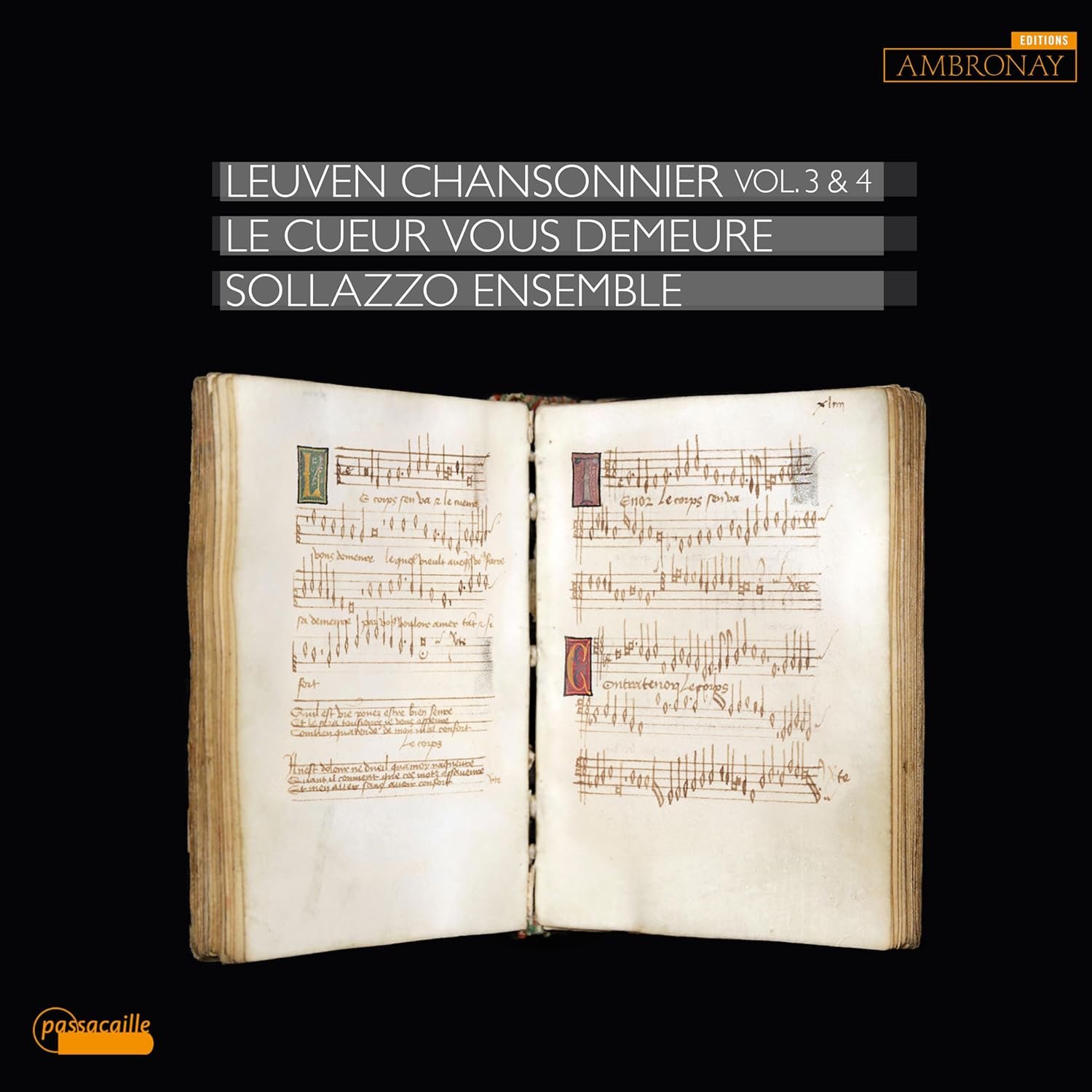Ni Dufay, Ni Binchois. The Works of Johannes Pullois.
Feast of the Swan: Den Bosch Choirbook vol. 4
"The music seems to have a spontaneous, almost improvisatory flow. The singers and players seem to be speaking their native musical language, not performing a musicological exercise."
Le cueur vous demeure: Leuven Chansonnier vols. 3 & 4
“L’Ensemble Sollazzo nous aura offert de ce manuscrit richement enluminé une lecture passionnante, fraîche, variée, éclatante, osée mais convaincante.”
Ou beau chastel: Leuven Chansonnier, vol. 2
"With refinement in every gesture and without any trace of aloofness, the potentially museological chansons are brought back to life as songs in which hearts are audibly creaking and sweet words melt even the most frigid paramour."
Leuven Chansonnier
“The Leuven Chansonnier (1470-75) includes fifty compositions by leading 15th-century Franco-Flemish names as Johannes Ockeghem, Antoine Busnoys, and Firminus Caron but also twelve newly re-discovered works, found in no other source! The Ensemble Sollazzo brings a selection of this music to life in the present recording in the most refreshing and brilliant interpretation.”
Firenze 1350: A Medieval Florentine Garden
“Florence, second half of the 14th century: in the heart of a city in full humanist and cultural seething, composers such as Francesco degli Organi and Paolo Da Firenze brought the music of their time to its peak. A unique abundance that Sollazzo Ensemble invites us to discover with this new disc!”
En Seumeillant: Dreams and visions in the Middle Ages
“Sollazzo ensemble approaches with stylistic rigor and communicative passion the vast and little-played repertoire of late-medieval music. From the most innocent reverie to drunken songs and mysticism, the program of this first disc for Ambronay Éditions paints a varied picture of the journey through mind and spirit, as found in the musical repertoire of the Middle Ages.”
Parle qui Veut: Moralizing Songs of the Middle Ages
“Sollazzo Ensemble makes its recording debut following its prize-winning performance at the highly respected biennial York Early Music International Young Artists Competition. On Parle qui veut the performers embrace the exuberant style of flourishing melodies which was fashionable in the north of Italy in the fourteenth century. In contrast, a different kind of expressivity is required for the sober and succinct aesthetic of the works with French provenance. A remarkable debut!”









